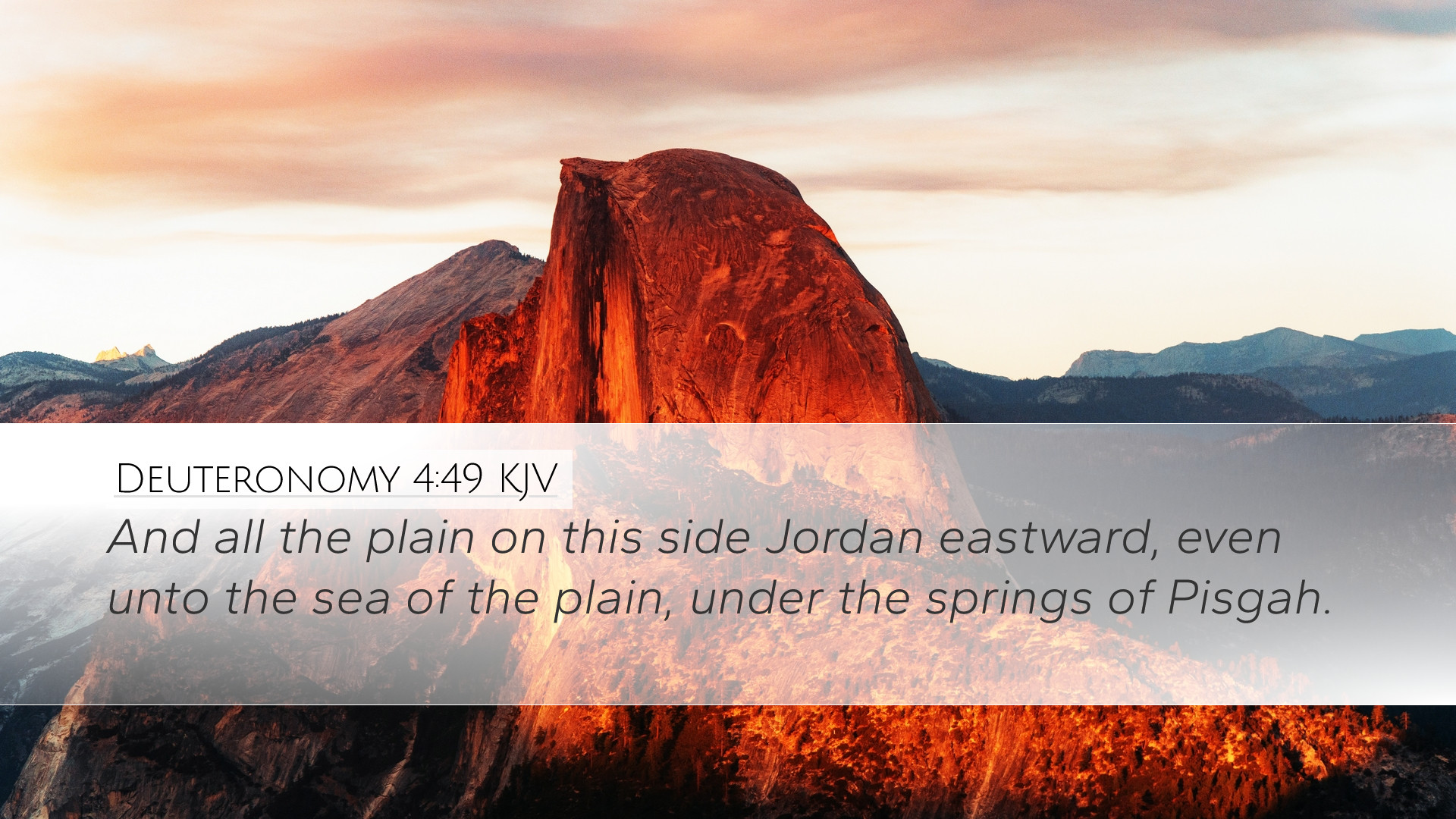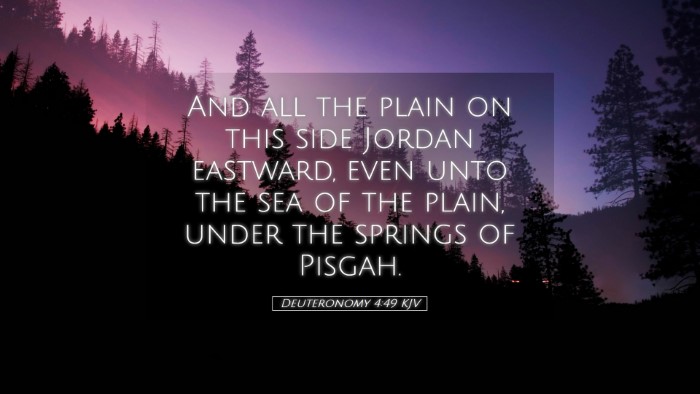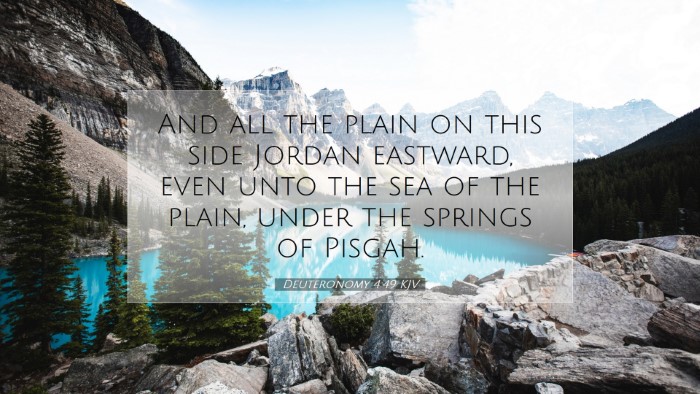Commentary on Deuteronomy 4:49
Verse Text: "And all the plain of the valley of Jericho, the city of palm trees, as far as Zoar." (Deuteronomy 4:49)
This verse describes geographical locations relevant to the Israelites as they prepare to enter the Promised Land. The mention of Jericho, known as "the city of palm trees," is significant both geographically and symbolically. The plain of Jericho symbolizes the bounty and prosperity awaiting the Israelites, while Zoar represents escape and refuge.
Historical and Geographical Context
The context of Deuteronomy involves Moses' address to the Israelites before they enter Canaan. This was the final reminder of God’s covenant and the emphasis on obedience. The plain of Jericho is renowned for its fertility and is often associated with various biblical events.
Insights from Matthew Henry
Matthew Henry provides an insightful overview of the geographical significance in his commentary:
- Jericho's Importance: He notes Jericho's position as the first city the Israelites would encounter upon entering Canaan, thus symbolizing the beginning of their conquest.
- City of Palm Trees: Henry highlights the picturesque nature of Jericho, which was lush and supported a thriving population, contrasting the barren wilderness the Israelites survived in.
- Significance of the Valley: The valley represents the transition from wilderness to prosperity, emphasizing God's provision for his people.
Albert Barnes' Commentary
Albert Barnes brings additional depth, focusing on the context of location and its spiritual implications:
- Symbolic Entry: He elucidates the entrance into Canaan as a divine promise fulfilled, where Jericho serves as a pivotal point in this narrative.
- Contrast to Past Experiences: Barnes emphasizes the transition from a life of uncertainty in the wilderness to a flourishing life in the promised land.
- Spiritual Reflection: He prompts the reader to consider their own journeys to spiritual fulfillment and how they interpret the 'cities of palm trees' in their own lives.
Adam Clarke's Interpretation
Adam Clarke expands on the textual nuances and cultural significance of the locations mentioned:
- Historical Associations: Clarke mentions the historical significance of Jericho and its ongoing representation of divine provision amidst trials.
- The City of Zoar: He discusses Zoar's mention as a refuge for Lot, indicating the theme of divine salvation throughout biblical history.
- Encouragement for the Faithful: Clarke suggests that this verse serves as encouragement for the faithful to stay committed to God’s directions as they navigate life's challenges.
Theological Implications
The geographical references in this verse can be explored for deeper theological implications. The "plain of the valley" portrays humility where God's blessings are abundantly poured out. The flourishing nature of Jericho serves as a reminder of God’s redemptive power and promises.
Application for Today
This passage reflects on themes of transition, promise, and divine sustenance. For pastors and theologians, it serves as a reminder to guide their communities toward the 'cities of palm trees' they encounter in their own spiritual journeys:
- Recognizing God's Provision: Just as the Israelites were reminded of God's provision, today’s believers must also trust in God's sustenance in both physical and spiritual realms.
- The Journey of Faith: This verse epitomizes the journey from trials to triumphs and serves as an affirmation that faith leads to fruitful outcomes.
- Teaching Resilience: The importance of teaching communities resilience through the recognition of entering new, fruitful phases in their faith journeys, much like the Israelites entering Canaan.
Conclusion
Deuteronomy 4:49 encapsulates the anticipation of a people on the cusp of fulfilling God’s promises. Its rich historical and geographical insights remind us of God’s unchanging nature. Biblical scholars and pastors can leverage this understanding to draw parallels between the past and contemporary faith experiences, offering insights into the richness of God’s faithfulness and provision.


